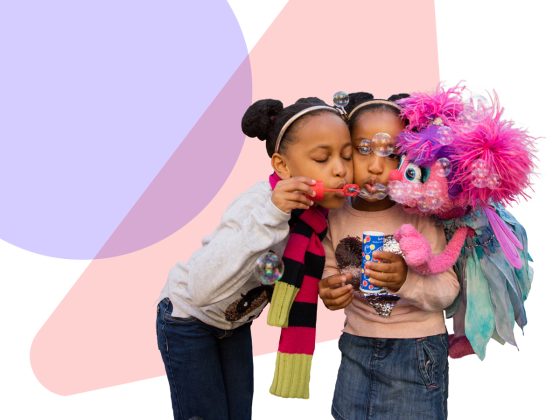
Responses to Traumatic Experiences, Age by Age
Responses to trauma look different at every stage of development.
Every child’s response to traumatic experiences is unique, but these experiences affect one’s whole body and entire emotional world. Here are some things to watch for. At any age, children may:
- seek or demand more attention,
- show aggression,
- seem withdrawn,
- startle easily,
- have sleep problems,
- have separation anxiety or show fear of certain adults,
- cry for reasons adults can’t figure out,
- show regressive behaviors (such as wetting the bed after being potty trained),
- show increased irritability, and
- display sadness.
Birth to 2
Infants and toddlers may:
- have digestive problems and low appetite and weight,
- possess weaker verbal skills and more memory problems than older children, and
- have exaggerated emotional responses (such as screaming or crying).
Ages 3 to 6
Young children may:
- have difficulty focusing in school,
- have delays with certain skills or demonstrate learning disabilities,
- act out with anger in social situations,
- become anxious or fearful,
- have “thoughts that won’t stop”,
- develop low self-confidence or feelings of mistrust toward others,
- have stomachaches and/or headaches, and
- “act out” the trauma in play, drawing, or speaking.
Sources
Schuder, M. R., & Lyons-Ruth, K. (2004). “Hidden trauma” in infancy: Attachment, fearful arousal, and early dysfunction of the stress response system. In J. Osofsky (Ed.), Young Children and Trauma: Intervention and Treatment, pp. 69–104. New York: The Guilford Press.
Main, M., & Solomon, J. (1990). In M. T. Greenberg, D. Cicchetti, & M. Cummings. (Eds.). Attachment in the preschool years: Theory, research, and intervention, pp. 121–160. Chicago: The University of Chicago Press.
Zero to Three/National Center for Clinical Infant Programs. (2005). Diagnostic Classification of Mental Health and Developmental Disorders of Infancy and Early Childhood, Revised Edition. Arlington, VA: Author.
Lieberman, A. F., & Van Horn, P. (2008). Psychotherapy with infants and young children: Repairing the effects of stress and trauma on early attachment. New York: The Guilford Press.
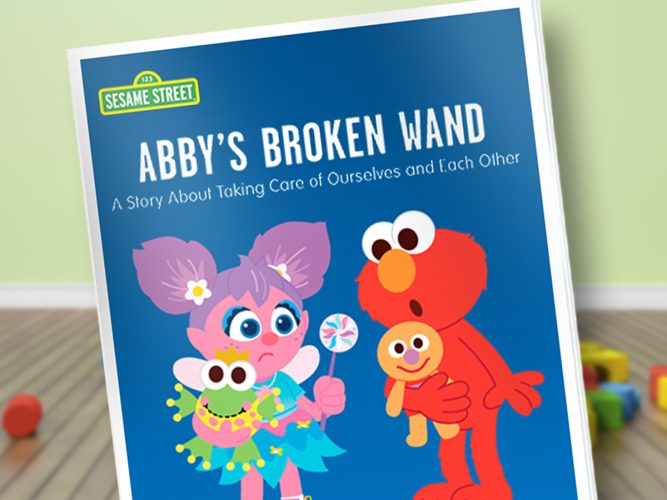
Abby's Broken Wand
A storybook featuring strategies to help children cope with big feelings.
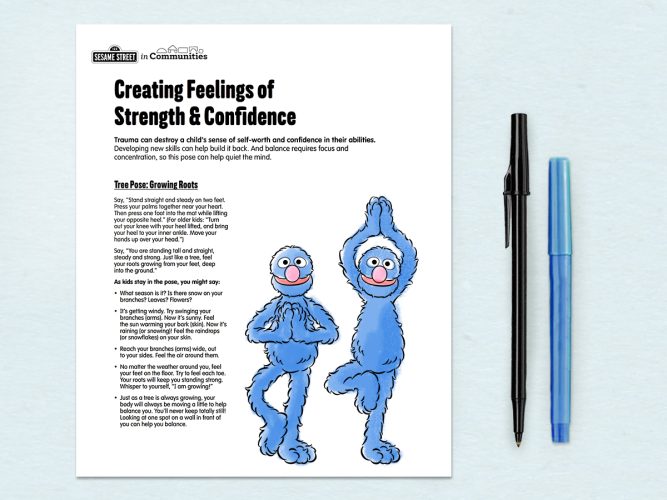
Creating Feelings of Strength and Confidence
A focused movement activity that builds confidence and a sense of groundedness.
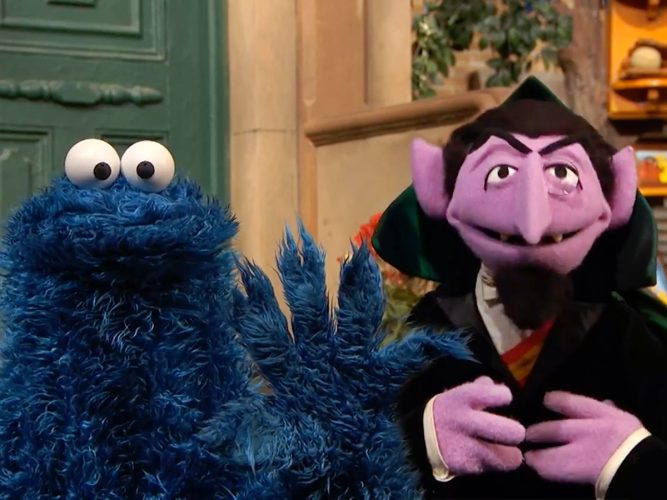
Learning How to Count, Breathe, Relax
Small things can set kids off, but you can teach them a self-soothing breathing exercise to use on their own.
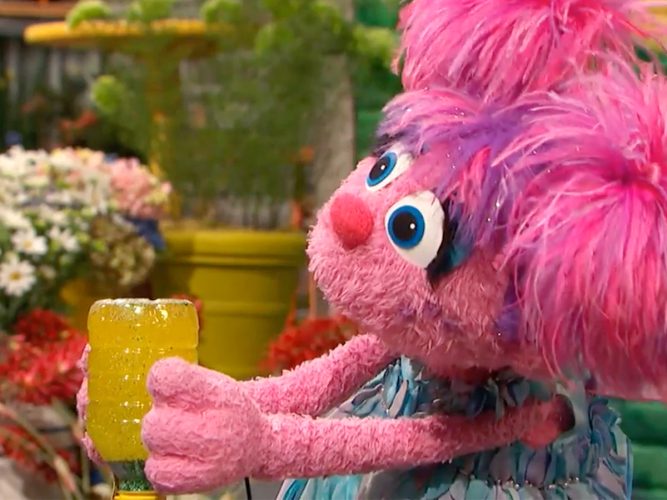
Slow Down & Settle Down
Parents and children can share ways they calm and soothe themselves. This video provides more self-care ideas.
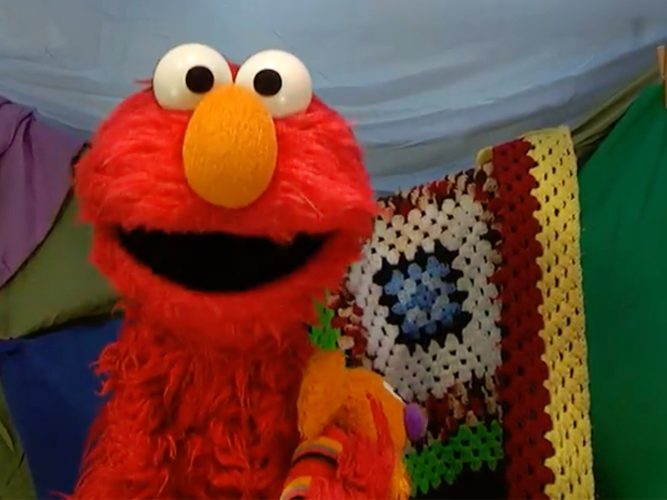
Feeling Safe
In order for healing to begin, it’s critical that kids feel protected and safe.
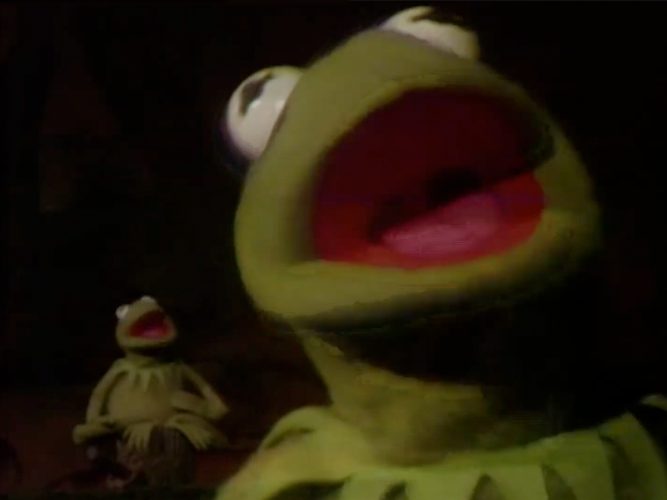
It’s Not Easy Being Green
A song about being ourselves.
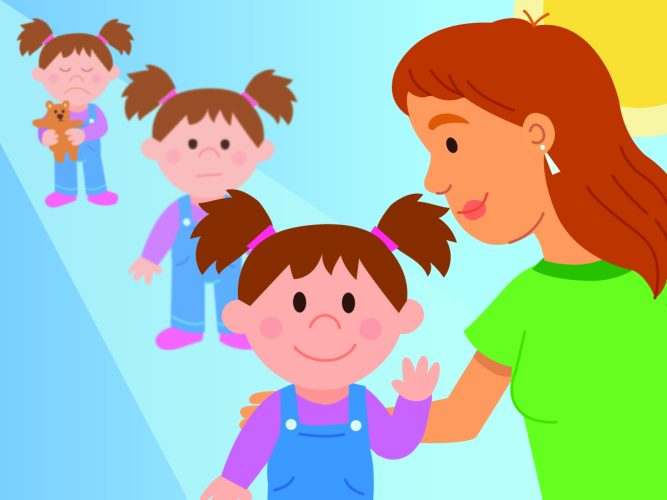
Helping Children Make Meaning After Trauma with Chandra Ghosh Ippen
Learn how young children experience trauma and what can help with Sesame Workshop’s Tara Wright, and clinical psychologist and author Chandra Ghosh Ippen.
